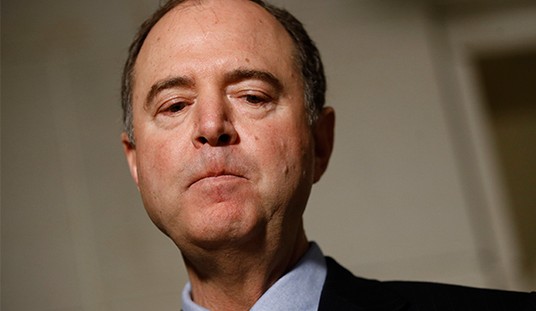The election is upon us and there’s one thing certain: there are going to be close races. And close races mean that armies of lawyers for both sides will descend on courtrooms across the country to challenge the results.
There will also be the usual accusations of voter fraud, voter suppression, voter intimidation, balky voting machines, and violations of one or more of the dizzying array of laws governing the way we choose our leaders. And standing in line, waiting to pounce, are the attorneys — many of them upaid — who will zealously guard their party’s interests in any dispute.
With six of the GOP’s top-targeted races down to margins of less than a point, both parties say any state is ripe for a post-election legal battle. Marc Elias, national Democrats’ go-to election lawyer, said he’s gearing up for issues everywhere.
“I am prepared for any of the competitive states. I don’t have the luxury of knowing whether it’s gonna be a good night for the Democrats and therefore Kentucky and Georgia are close or a bad night and the close races are in Colorado and Iowa,” he said.
The most pressing concerns for the parties are potential Election Day legal violations.
Rumors of planned voting fraud abound in the week leading up to it—Trading hamburgers for votes in Wisconsin’s gubernatorial race; poll watchers challenging the eligibility of every voter in Louisiana to cause huge lines; party operatives filling out and turning in mail ballots for dead voters in Colorado; misinformation intended to steer people to the wrong polling places in North Carolina and elsewhere.
While little, if any, tangible proof those misdeeds are underway has yet cropped up, both parties are preparing for all that and worse.
The Democratic National Committee has already deployed two dozen staffers to around two dozen states as part of its “Voter Expansion Project,” an effort to ease access to the polls in part by trouble-shooting any last-minute issues on Election Day.
The party can alert voters via text message or email if issues crop up with their local polling places. It has data tools to monitor whether wait times and turnout are at their expected levels, and can dispatch staffers to investigate any irregularities. All of Democrats’ poll watching volunteers and staffers nationwide can share data with each other through a DNC tool meant to track issues and highlight potential trends.
“From here, and on the ground in the states’ boiler rooms, we can monitor in real-time what’s happening at the polls,” said DNC spokesman Michael Czin. “We have as close to a 360-degree view of the electorate as possible.”
On the GOP side, the National Republican Senatorial Committee has been gathering information concerning polling places, recount provisions and voting rules in 11 of its top battleground states. The Republican National Lawyers Association is training an army of 1,000 lawyers nationwide to tackle potential legal issues on Election Day and beyond.
In addition to the national armies, the state parties are gearing up.
There have always been lawyers, of course. But ever since the Bush-Gore donnybrook in 2000, the parties have made sure they have lawyers ready to respond at a moment’s notice to deal with issues that arise on election day — and after.
“Since 2000, when the parties felt, especially Democrats, they were caught flatfooted, they send lawyers to places where they expect close races,” Hasen said. “Campaigns now have boiler rooms where they sit and watch the polls. The most important thing is to have a (legal) infrastructure in place.”
And some legal maneuvering already has begun. In Iowa, Republican Senate candidate Joni Ernst’s campaign filed open records requests last week in at least eight counties asking for information on satellite voting locations, names of precinct ballot counters, recount procedures and any communications sent to her Democratic challenger, Rep. Bruce Braley.
“I think they’re gearing up for a recount,” Johnson County Auditor Travis Weipert told The Gazette newspaper of Cedar Rapids.
National Democratic and Republican officials won’t divulge their Election Day legal strategies. Still, some available numbers show the emphasis that the parties and outside groups are putting on possible legal action.
The Republican National Lawyers Association has conducted 60 election law training sessions nationwide. From those sessions, more than 1,000 lawyers and volunteers will be prepared to work in their states on Tuesday, according to Michael Thielen, the association’s executive director.
“Efforts to ensure open, fair and honest elections are state-based,” Thielen said in an email to McClatchy. “We will try to help out in the event of canvases, recounts, etc., if called upon to ensure only legal votes are counted.”
Democrats declined to say how many lawyers they have on call for Tuesday.
“We have the resources to contest anything,” said Democratic National Committee spokesman Michael Czin. “We’re ready.”
Groups such as the NAACP and the Brennan Center for Justice at New York University Law School say they’re ready, too. They’re among the liberal-leaning organizations partnering with the Lawyers Committee for Civil Rights Under Law, which says it will have between 1,000 to 2,000 volunteer attorneys and non-attorneys in 18 states and on telephone hotlines on Tuesday prowling for problems at the polls.
It appears that you won’t be able to go to the voting booth without tripping over a couple of lawyers. That will be especially true in states that are implementing voter ID laws for the first time. Liberals are going to do everything they can to gum up the works to allow their voters to cast ballots. Expect the sabotaging of voter ID by Democrats wherever possible.
The real drama will come if any recounts occur. All states have established thresholds for automatic recounts, but many states allow a candidate to request a recount — as long as he/she pays for it. Anyone who remembers the high drama and low comedy of the Bush-Gore recount (immortalized in a pretty good HBO film, Recount) knows that in situations like that, you can never have too many lawyers.
You can bet before it’s all over and the winners certified, we’re going to be lawyered out. Is this any way to run an election? Party attorneys wouldn’t have it any other way.










Join the conversation as a VIP Member